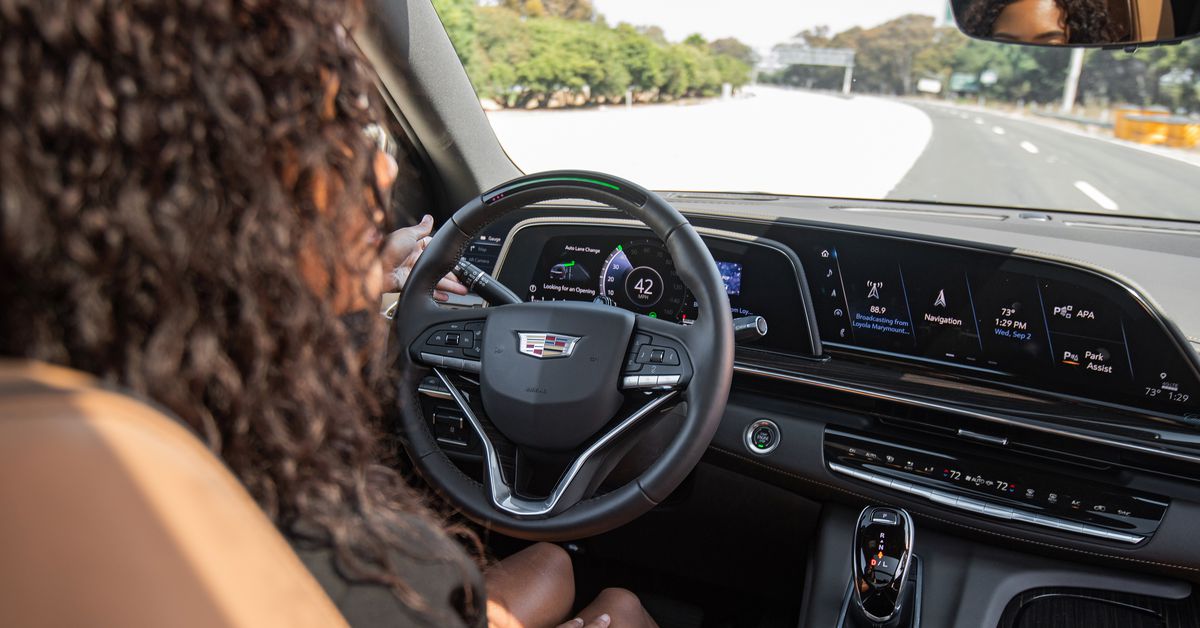- cross-posted to:
- [email protected]
- cross-posted to:
- [email protected]
The one that passed: Lexus Teammate with Advanced Drive (2022-24 Lexus LS)
Saved you a click.
Keep being excellent!
And here are the requirements:

Notice how they do not say anything about the automated driving system itself.
tl;dr: Lexus passed, Tesla failed every test
Tesla had 2 (A) Acceptable scores, but it was the worst of all systems tested.
deleted by creator
All the head start in the world can’t save you when you have Elon Musk as CEO. He decided years ago that sensors like LIDAR and such are expensive and unnecessary, “because people can drive with just their eyes”. So now Teslas rely exclusively on cameras, and have a much harder time figuring out the shape of stuff around them. Can’t add sensors with a software update, so they’ll be behind for a good while more.
This was testing by an independent group that generated their own metrics which were heavily slanted toward driver monitoring rather than automated driving.
It also used out of date Tesla firmware. The specific test in figure 3b of the article used to ‘trick’ a Tesla hasn’t worked for months. The car warns you that using a ‘defeat device’ will result in being unable to use the self-driving feature for the remainder of your drive and will eventually lose you the access to the beta program for FSD.
FSD still is a way to go before it gets released out of beta.
Linking to the actual test so you don’t have to visit the verge.
What is interesting to me that many failed on the driver monitoring side which to me as a consumer (not a traffic authority) is probably actually a pro not a con. I don’t want my car insessantly beeping at me for dumb reasons. I wouldn’t intend to use these systems without attention but stricter controls will also mean more false positives.
By this logic Lexus, Volvo, Nissan, Mercedes, and even Ford seem great (somewhat depending on the model of the car).
Whats also funny is that the Tesla utterly failed almost all categories except the lane change (and passed emergency). But it can’t even do that unless you’re willing to pay them extra thousands of dollars for the software unlock.
Am I blind? What on earth does A M P and G mean
Edit:
A system may be assigned a rating of good, acceptable, marginal or poor
The chart could really use a legend included with it
Just guessing but maybe (G)ood, (A)cceptable, (M)arginal, (P)oor? Or perhaps (G)od-tier, (A)ss, (M)eh, and (P)wned?
The chart could really use a legend included with it
Absolutely, I had to look it up in the pdf linked at the bottom, it’s on page 30!
I rented a Nissan that would scream at you for deviating from a lane. I couldn’t turn it off fast enough. Driving on a small winding road was constant false positives. Even on the highways, faded and repainted lines was throwing false positives. It was more of a distraction than a help. When driving in an unfamiliar city I didn’t need the car distracting me with its disfunction.
Turning it off was buried deep in a menu that was not convenient to find. There would be no way to quickly or safely toggle it on and off as conditions vary.
For me as the driver of not one of these cars, I think the driver monitoring and sheeting is perhaps one of the most important parts of these systems. I 100% want your car to scream at you for not paying attention while use the driver assist features because it’s such a common and easy thing to do (if it works 99 times without issues, human nature is to assume it will work that 100th time, so checking that email from work real quick is probably fine). When the consequences of a driver failing to post attention while using these systems is potentially other people dying in a horrific crash, your discomfort at an alert because you happen to be a perfect driver that never does other things in the car while driving doesn’t matter.
That’s fine, I agree it makes the roads safer, but it won’t make me buy a car that screams at me
Also some of these cars are from 2021. I imagine there can be a significant difference between these and newer models.
I wonder how Audi is doing. They had a level 3 car coming out a few years ago now. Haven’t heard of it since…
found to be easily tricked and bad at monitoring driver attention
They didn’t even test if the cars could avoid an accident.
I know my car’s adaptive cruise can’t see a white trailer. It figures it’s open sky and accelerates.
I live in the Appalachians and so my commute is twisty mountain roads.
The last car I loaned was a maxima which immediately forgot there was a car in front of me whenever I or the car in front “disappeared” on a turn.
It would also flash tf out of people on turns and hills with its dumb auto highs.
And the name of the one that passed?
Albert Einstein.
Also, “Only one was found to be acceptable: Lexus’ Teammate with Advanced Drive.”
Thank you, rich people, for testing out these features until they are ready for the normal cars.
This is the best summary I could come up with:
Driverless cars keep running into roadblocks — and bicyclists — so automakers are doubling down on partially automated systems, betting that customers will appreciate the novelty and convenience of a bunch of features that steer, accelerate, and brake for them.
Moreover, these are not advanced driver assist systems, also known as ADAS, which IIHS defines as safety features like automatic emergency braking, blindspot detection, and lane departure prevention.
“Partial automation is a convenience feature,” IIHS spokesperson Joe Young said in an email, “and while others may lump it in with ADAS, we’re continuing to draw a distinction by referring to it separately.”
“These results are worrying, considering how quickly vehicles with these partial automation systems are hitting our roadways,” IIHS president David Harkey said in a statement.
IIHS tested partial automated systems in 14 vehicles, including popular ones like Tesla’s Full Self-Driving, GM’s Super Cruise, and Ford’s BlueCruise.
And IIHS notes that some of the vehicles in its fleet received software updates during the course of testing that included improvements to the partial automated system.
The original article contains 606 words, the summary contains 175 words. Saved 71%. I’m a bot and I’m open source!
Would love to have seen OpenPilot form Comma on this list to how it compared.








